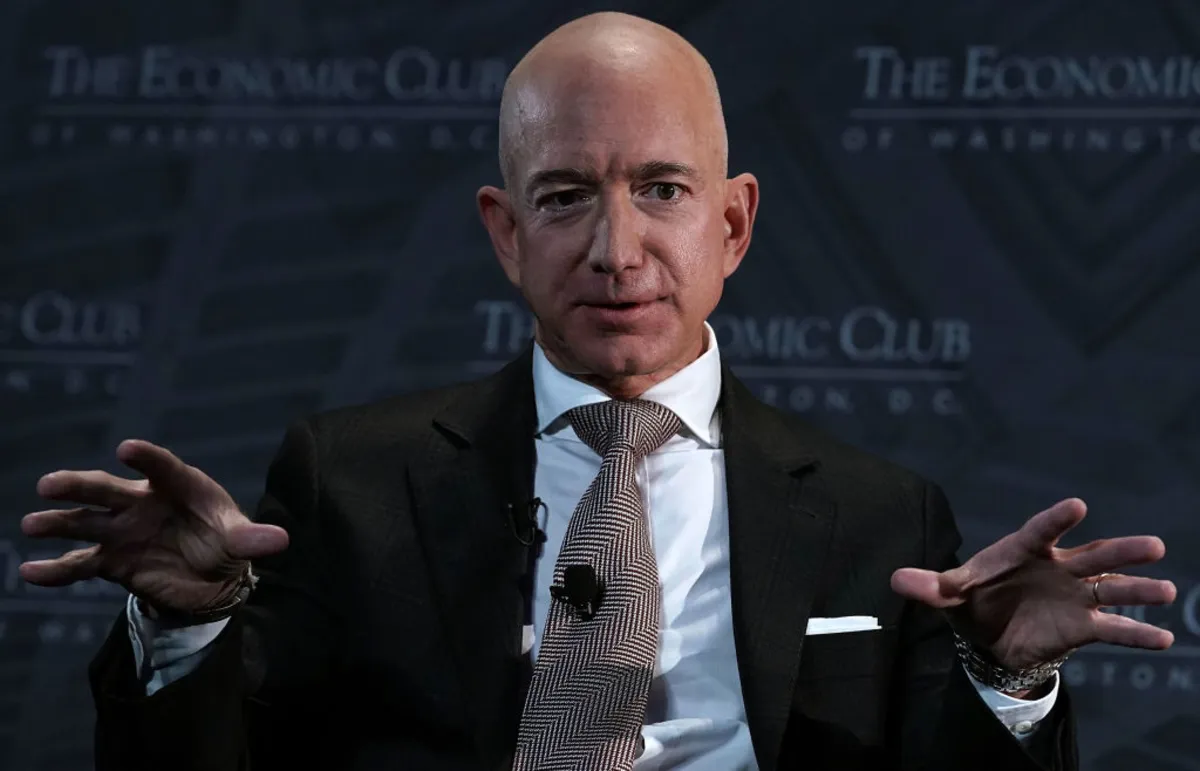
Jeff Bezos, the world’s third-richest man, has recently made headlines with a significant change in editorial policy at The Washington Post, a newspaper he purchased in 2013. This decision marks a departure from the paper's previous commitment to diverse viewpoints, as Bezos has decreed that the publication will no longer feature opinions that challenge free market economics. This move has raised eyebrows and sparked discussions about the implications of billionaire ownership of media outlets.
Bezos's announcement has been interpreted by many as an unmasking of the motivations behind billionaire ownership of newspapers. Critics have long suspected that such ownership goes beyond financial investment; it serves to create ideological barriers. The shift aligns with sentiments expressed by figures like democratic socialist presidential candidate Bernie Sanders, who previously noted the negative portrayal of his candidacy by the Post, speculating on the potential influence of Bezos's ownership.
Two years later, comments from right-wing blogger Curtis Yarvin echoed similar concerns regarding the influence of ownership on editorial independence. In a debate, Yarvin defended the idea that Bezos had little direct interference, claiming that the Post was “autonomous.” However, recent events suggest a different narrative, particularly following Bezos's personal intervention to halt a potential endorsement of Kamala Harris.
This week, Bezos unveiled a new direction for the opinion pages of The Washington Post. He stated, "We are going to be writing every day in support and defense of two pillars: personal liberties and free markets." This directive signifies a clear limitation on the viewpoints that can be represented, effectively sidelining dissenting opinions. Furthermore, Bezos indicated that if the editorial page editor, David Shipley, did not embrace this directive, he would need to find a new position.
In a striking parallel to libertarian rhetoric, Bezos's pairing of “personal liberties” and “free markets” draws attention to the underlying conflicts between freedom of thought and the freedoms enjoyed by business owners. This raises critical questions: What happens when personal liberties conflict with the capitalist system? In a 2017 essay for the Post, socialist writer Freddie deBoer highlighted instances of corporations stifling free speech among employees, a concern that now sits at odds with Bezos's new editorial policy.
Bezos's reasoning for this policy change suggests a dual narrative: he claims that op-ed pages have become less relevant, while simultaneously asserting the importance of promoting pro-market views. He argues that the Post is filling a void in the media landscape, claiming that the pro-free market perspective is “underserved.” However, a brief glance at other major publications, such as the New York Times and the Wall Street Journal, reveals a robust debate that includes diverse opinions, including socialist viewpoints.
Critics argue that if the internet already provides a platform for various perspectives, there is no need for The Washington Post to become another outlet for libertarian ideology. Bezos’s ownership of one of the nation’s most influential newspapers gives him unparalleled power to shape public discourse, and his recent actions indicate a willingness to wield this power more aggressively.
The implications of Bezos's new editorial stance extend beyond mere opinion pages. His remarks suggest an ideological commitment to preserving the status quo, wherein the interests of capitalists are prioritized over broader societal concerns. The argument that unrestricted capitalist power is ethical because it minimizes coercion fails to address the complexities of resource distribution and the coercive mechanisms that underpin economic systems.
In conclusion, Bezos's decree to align The Washington Post’s editorial direction with pro-status quo perspectives highlights a significant shift in the landscape of American media. This move raises important questions about the role of major newspapers in fostering open debate and the potential consequences of sidelining dissenting voices in favor of a singular ideological narrative.